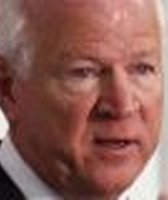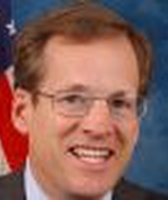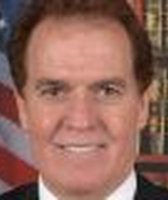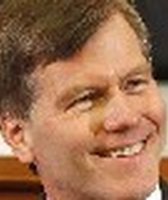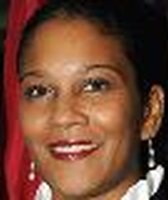Stand up for the facts!
Our only agenda is to publish the truth so you can be an informed participant in democracy.
We need your help.
I would like to contribute
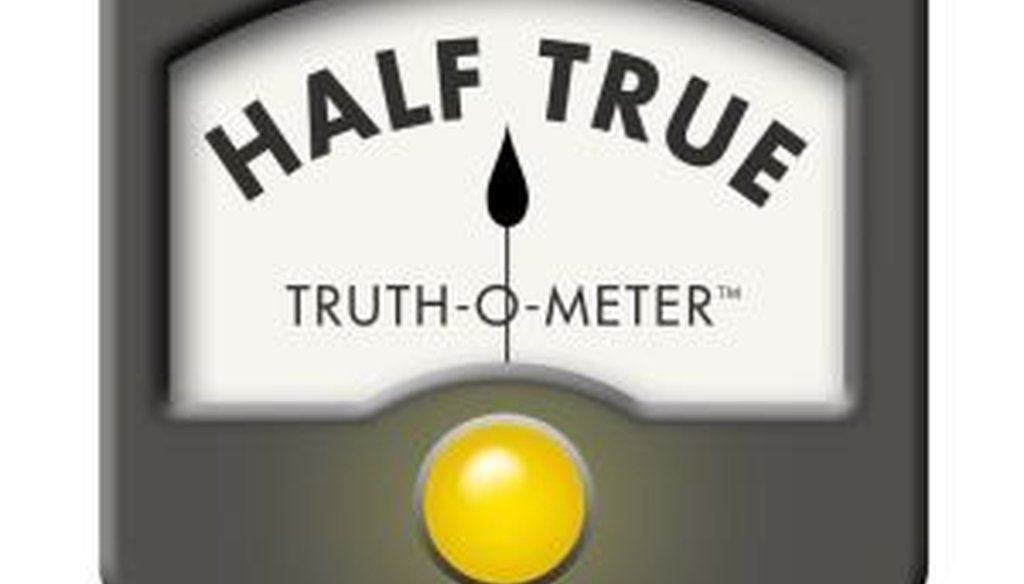
The Truth-O-Meter was stuck on Half True last week.
The Truth-O-Meter spent much of the past week stuck on Half True.
Hope as we might that politicians and pundits would be beacons of truth, they struggled to get things right on everything from mammograms to the federal budget.
In one case, both Democrats and Republicans fumbled on the same issue: foreign money in U.S. elections. And in one case -- taxes -- a Republican got it mostly right.
Want to comment on our rulings? Try us on Facebook or Twitter.
Here's how things went down:
U.S. House Rep. Jim Marshall, D-Ga., said he "opposed every budget, Republican and Democrat."
Marshall, a Democrat from Macon, is fighting for his political life in his Middle Georgia district. This election season, that means distancing himself from Democrats in Washington and sky-high federal spending.
"In Congress, both sides are addicted to deficits, so I"ve opposed every budget, Republican and Democrat," Marshall said in a recent campaign ad.
Sounds simple enough. But it's not.
Sign up for PolitiFact texts
Marshall voted against each year's budget resolution, which covers mandatory federal spending such as Social Security and Medicare.
There's also a dozen separate appropriations bills every year that fund discretionary federal spending. They account for about one-third of the budget and cover everything from military operations to road building.
Marshall voted in favor of all but five federal spending bills during his eight years in Congress.
Experts agreed that voting against the budget resolution is important, but strictly talking about it without discussing the underlying spending bills omits critical context.
Half True.
Democrat Mary Squires said rival state insurance commissioner candidate Ralph Hudgens "fights hard" to strip women of lifesaving coverage such as mammograms.
If you believe Democrats, Hudgens, a state senator and the Republican candidate for insurance commissioner, is trying to get between women and their mammograms.
"Why would we vote for an insurance commissioner who fights -- and fights hard -- to strip women of lifesaving coverages like mammograms?" Squires asked Morris News Service in a recent article.
This skirmish is part of an ongoing battle over whether Georgia law should require certain health insurance policies to cover mammograms, Pap smears, colorectal cancer screening and other services. These requirements are called "mandates."
Hudgens opposes mandates.
It's reasonable to be concerned that the end of mandated coverage for mammograms could mean that it would be harder to get. Women could have to pay a premium for coverage. Fewer might get mammograms.
But saying Hudgens fought to "strip women of lifesaving coverages like mammograms" is an overstatement. He fought to take away mandatory coverage.
Half True.
President Barack Obama: "Groups that receive foreign money are spending huge sums to influence American elections."
Obama has repeatedly warned that foreign money may be bankrolling attack ads against Democrats.
Exhibit A: The U.S. Chamber of Commerce, according to the above statement on Oct. 7.
Federal law prohibits foreign corporations, organizations or other groups from making "directly or indirectly" a donation or expenditure "in connection with a Federal, State, or local election," to a political party committee or "for an electioneering communication."
But Obama thinks that the Supreme Court ruling in Citizens United vs. Federal Election Commission in January opened the floodgates for special interests -– including foreign corporations.
Chamber officials acknowledged their group received foreign money, but they said it amounts to a small fraction of the group's total budget and does not finance its U.S. political agenda. They have not disclosed their donors and are not required to by law.
There may be a problem, but Obama has not offered evidence that foreign money is actually being used for ads.
Half True.
Political commentator George Will: Just like the U.S. Chamber of Commerce, "the AFL-CIO receives dues from foreign entities associated with it."
Will made this comment on ABC's "This Week" on Oct. 10 after host Christiane Amanpour played a clip of the president's remark about foreign money, American elections and the U.S. Chamber.
Will's statement is technically true, an AFL-CIO spokesman said, but requires some caveats.
Workers belong to unions, which in turn are members of the AFL-CIO. Some affiliates do have Canadian members, but dues from them don't get passed on to the AFL-CIO.
And unions must disclose contributions over $5,000. The U.S. Chamber, as a trade association, does not.
When contacted by PolitiFact, Will noted that groups across the political spectrum accept foreign money of some sort while pushing causes in the U.S.
So while Will's statement is technically correct, it lacked important context. Half True.
Lt. Gov. Casey Cagle: Georgia lawmakers balanced the budget without raising taxes on residents.
Cagle, a Republican running for re-election, bragged about this at a GOP rally in Carroll County, giving some of the credit to Gov. Sonny Perdue.
The problem is that lawmakers did raise fees in this past session's House Bill 1055. Do they count as taxes?
When it came to the battle over the bill's so-called "hospital bed tax," the distinction wasn't clear. It required hospitals to give the state 1.45 percent of their net patient revenue, or about $200 million a year.
Some called it a tax, but by our analysis it was the indirect passing along of a hospital surcharge to patients.
Then there's the Homeowner's Tax Relief Grant program, which legislators did not renew. It gave Georgia homeowners between $200 and $300 to offset their property taxes. Technically, it wasn't an increase, but the bottom line is that many homeowners will pay more.
Cagle's statement is accurate but needs clarification on the tax relief grant. Mostly True.







